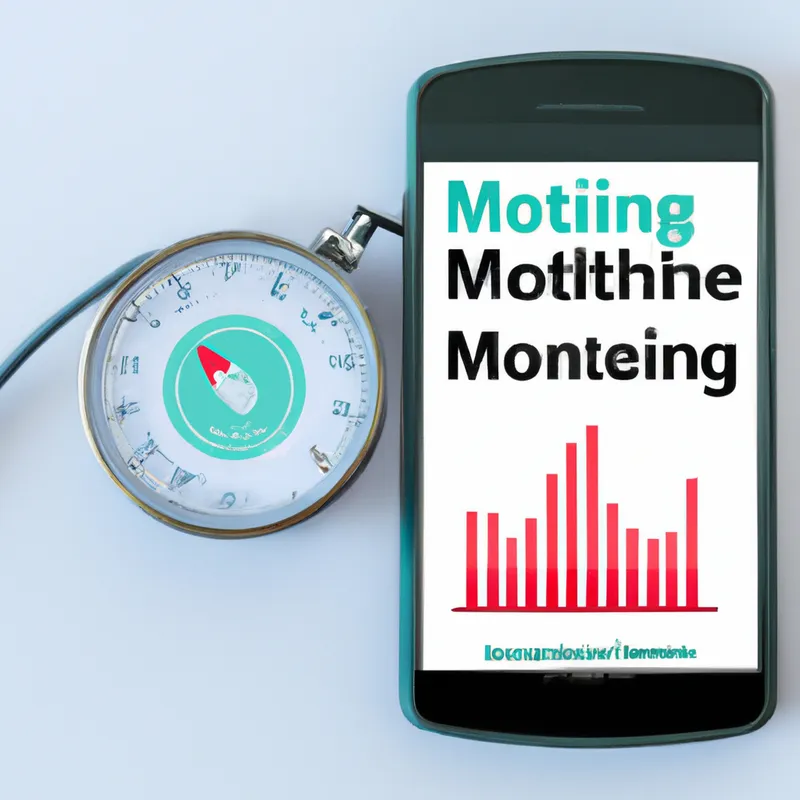Maximize Returns on Mobile Health Monitoring Apps
How to Measure the ROI of Mobile Health Monitoring Apps
Mobile health monitoring apps transform healthcare. They empower patients to track their health in real time. They also enable healthcare providers to access critical data. However, quantifying ROI for these apps can be challenging. This post explores how to evaluate the ROI of mobile health monitoring apps effectively.
Understanding ROI in Healthcare
ROI measures investment profitability. In healthcare, it evaluates financial benefits from a particular initiative. For mobile health monitoring apps, ROI calculations include several factors. These factors range from cost savings to improved patient outcomes. Thus, understanding direct and indirect benefits is vital.
Direct Financial Benefits
First, consider direct financial benefits of mobile health monitoring apps. These benefits often appear in reduced hospital admissions and shorter patient stays. For instance, studies may show patients using these apps visit the ER less frequently. This reduction translates to lower healthcare costs for providers.
Next, factor in medication adherence. Apps reminding patients to take medications can improve adherence rates. Improved adherence leads to better health outcomes, resulting in fewer complications and lower treatment costs.
Indirect Financial Benefits
Indirect benefits also contribute to ROI. For example, mobile health monitoring apps enhance patient engagement. Engaged patients follow treatment plans more closely. As a result, they experience better health outcomes, significantly reducing long-term healthcare costs.
Additionally, consider time saved for healthcare providers. With real-time data, providers make quicker decisions. This efficiency allows them to see more patients, ultimately increasing revenue.
Tips for Measuring ROI
To effectively measure ROI, follow these actionable tips:
1. Define Clear Objectives
Start by defining clear objectives for your mobile health monitoring app. What specific outcomes do you expect? Are you aiming to reduce hospital readmissions or improve patient engagement? Establishing clear goals helps measure success.
2. Collect Relevant Data
Next, collect relevant data to support your ROI calculations. Track metrics like patient engagement rates, hospital admissions, and medication adherence. Utilize analytics tools to capture this information efficiently. Comprehensive data leads to more accurate ROI assessments.
3. Analyze Costs and Savings
Analyze both costs and savings associated with the app. Include development costs, maintenance fees, and training expenses. Then, compare these costs against savings from reduced hospital visits and improved health outcomes.
Advice for Stakeholders
As you measure the ROI of mobile health monitoring apps, consider this advice:
Engage with Stakeholders
Engage with stakeholders throughout the measurement process. This includes healthcare providers, patients, and tech developers. Their insights refine your objectives and improve data collection methods.
Use a Balanced Approach
Adopt a balanced approach when analyzing ROI. Don’t focus solely on financial metrics. Consider patient satisfaction, quality of care, and overall health outcomes. These factors can be just as important as direct financial savings.
Regularly Update Your Analysis
Finally, regularly update your ROI analysis. Healthcare is dynamic, and so are the factors influencing ROI. By revisiting your analysis periodically, you can adjust strategies accordingly. This practice ensures alignment with your objectives.
Benefits of Measuring ROI
Measuring the ROI of mobile health monitoring apps provides several benefits:
Improved Decision-Making
First, accurate ROI measurement aids decision-making. It reveals whether your app is worth the investment. Consequently, you can allocate resources more effectively.
Enhanced Patient Outcomes
Second, focusing on ROI encourages a patient-centered approach. Understanding what works enhances patient outcomes. This improvement fosters loyalty and trust among patients.
Increased Stakeholder Confidence
Finally, clear ROI calculations build confidence among stakeholders. Demonstrating financial and health benefits attracts more investments. It shows your commitment to providing value through technology.
Conclusion
Measuring the ROI of mobile health monitoring apps is crucial for healthcare providers. By understanding direct and indirect benefits, you can demonstrate the value of these tools. Follow these tips to collect and analyze relevant data. Engage with stakeholders and remain adaptable. Ultimately, clear ROI measurement leads to improved patient outcomes and financial sustainability.
Below are related products based on this post:
FAQ
What factors should be considered when calculating the ROI of mobile health monitoring apps?
When calculating the ROI of mobile health monitoring apps, it is essential to consider both direct and indirect financial benefits. Direct benefits may include reduced hospital admissions and improved medication adherence, while indirect benefits can encompass enhanced patient engagement and time savings for healthcare providers.
How can healthcare providers effectively measure the success of their mobile health monitoring apps?
Healthcare providers can effectively measure the success of their mobile health monitoring apps by defining clear objectives, collecting relevant data on metrics such as patient engagement and hospital admissions, and analyzing both costs and savings associated with the app. Utilizing analytics tools can also aid in capturing this information efficiently.
Why is it important to engage stakeholders in the ROI measurement process?
Engaging stakeholders in the ROI measurement process is important because their insights can refine objectives and improve data collection methods. This collaboration helps ensure that the analysis is comprehensive and aligned with the needs and expectations of all parties involved, ultimately leading to better outcomes.















Post Comment